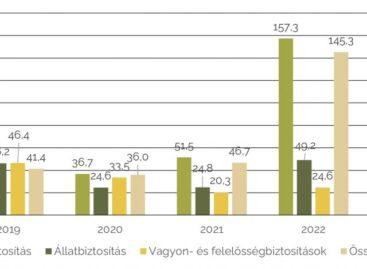Fifteen hundred years old grape seeds were found in the Negev desert
Charred grape seeds dating back 1,500 years were discovered recently in an archaeological excavation in the ruins of the ancient Byzantine city of Halutza, about 19 miles southwest of Beersheba.
In its heyday, in the 6th and 7th centuries A.D., Halutza or Elusa as it was called in Greek, was the most important Byzantine city of the Negev area.
The excavation is part of a broader bio-archeological research examining the rise and fall of the Negev Byzantine society, in the seventh century A.D. The research is conducted by the The Zinman Institute of Archaeology form the University of Haifa, and the Israel Antiquities Authority. (The Jewish Press, hirado.hu)
Related news
Agricultural subsidies: MBH Bank provides pre-financing for up to several years
MBH Bank further expanded the possibilities of pre-financing agricultural subsidies.…
Read more >Agricultural insurance claim payments decreased in 2023
Agricultural premium income totaled HUF 32.8 billion (-10 percent), and…
Read more >A new chapter in the development of Hungarian agriculture: HUF 475 billion in the name of sustainability and innovation
In accordance with the strategic plan of Hungary’s KAP (Common…
Read more >Related news
IGD: Retail media and increased efficiency will be important in 2024
This article sets out to summarise the retail trend predictions…
Read more >Vegan activist on Forbes’ prestigious “30 successful Hungarians under 30” list
Raul Vida, the founder of Prove magazine, is the first…
Read more >UEFA and Just Eat Takeaway extend partnership
Just Eat Takeaway has extended its partnership with the UEFA…
Read more >








